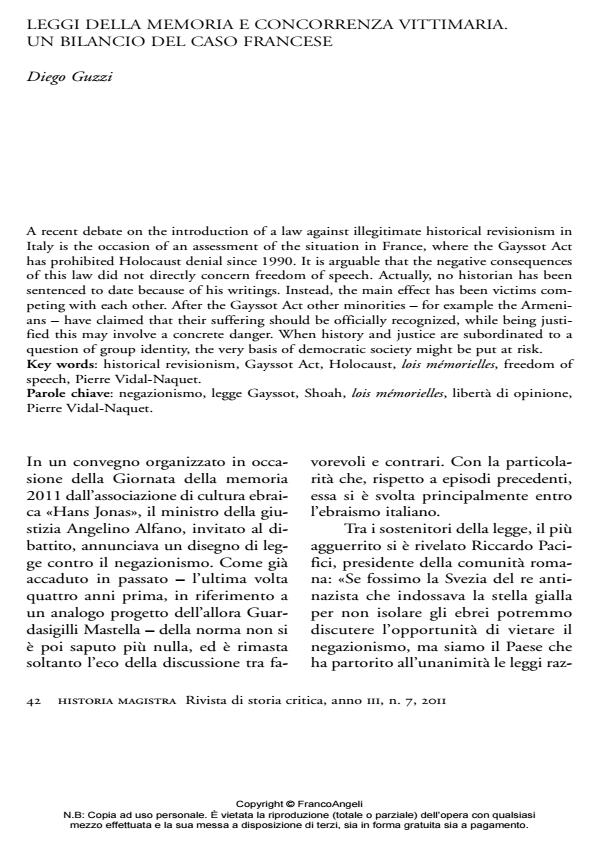Leggi della memoria e concorrenza vittimaria. Un bilancio del caso francese
Titolo Rivista HISTORIA MAGISTRA
Autori/Curatori Diego Guzzi
Anno di pubblicazione 2011 Fascicolo 2011/7
Lingua Italiano Numero pagine 6 P. 42-47 Dimensione file 109 KB
DOI 10.3280/HM2011-007005
Il DOI è il codice a barre della proprietà intellettuale: per saperne di più
clicca qui
Qui sotto puoi vedere in anteprima la prima pagina di questo articolo.
Se questo articolo ti interessa, lo puoi acquistare (e scaricare in formato pdf) seguendo le facili indicazioni per acquistare il download credit. Acquista Download Credits per scaricare questo Articolo in formato PDF

FrancoAngeli è membro della Publishers International Linking Association, Inc (PILA)associazione indipendente e non profit per facilitare (attraverso i servizi tecnologici implementati da CrossRef.org) l’accesso degli studiosi ai contenuti digitali nelle pubblicazioni professionali e scientifiche
A recent debate on the introduction of a law against illegitimate historical revisionism in Italy is the occasion of an assessment of the situation in France, where the Gayssot Act has prohibited Holocaust denial since 1990. It is arguable that the negative consequences of this law did not directly concern freedom of speech. Actually, no historian has been sentenced to date because of his writings. Instead, the main effect has been victims competing with each other. After the Gayssot Act other minorities - for example the Armenians - have claimed that their suffering should be officially recognized, while being justified this may involve a concrete danger. When history and justice are subordinated to a question of group identity, the very basis of democratic society might be put at risk.
Parole chiave:Negazionismo, legge Gayssot, Shoah, <i>lois mémorielles</i>, libertà di opinione, Pierre Vidal-Naquet
Diego Guzzi, Leggi della memoria e concorrenza vittimaria. Un bilancio del caso francese in "HISTORIA MAGISTRA" 7/2011, pp 42-47, DOI: 10.3280/HM2011-007005